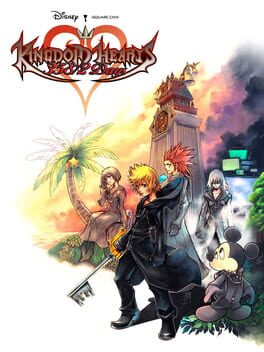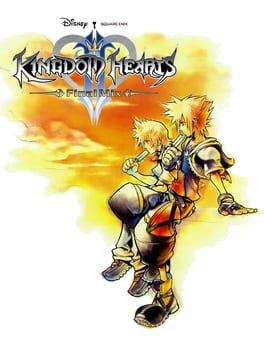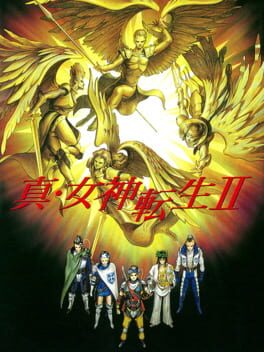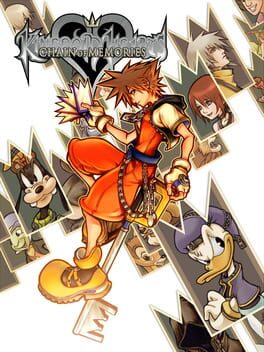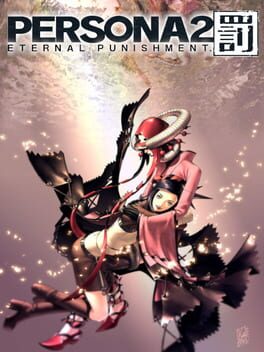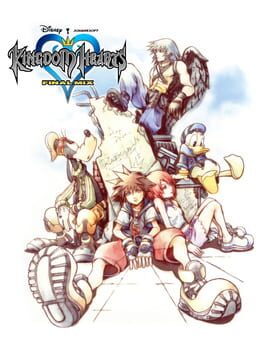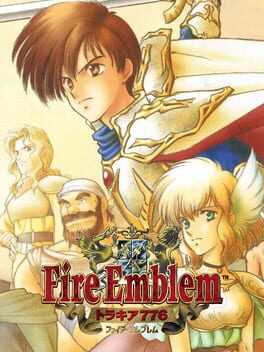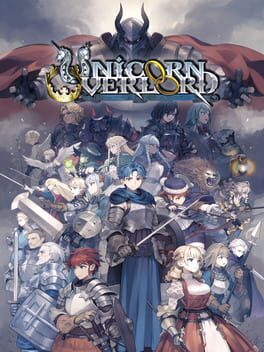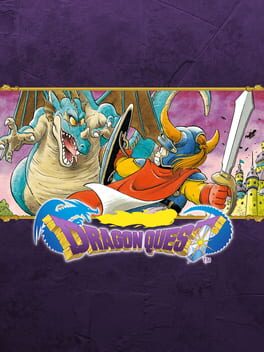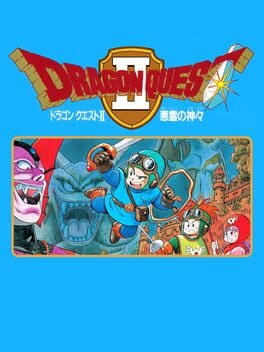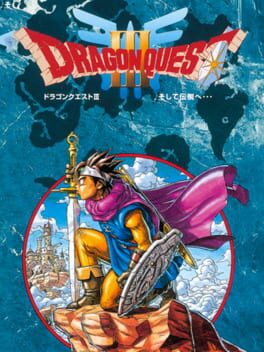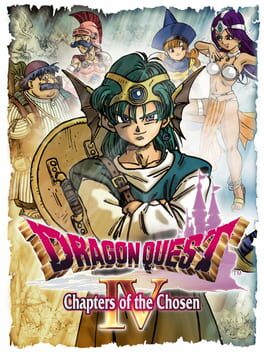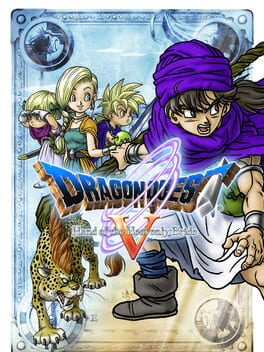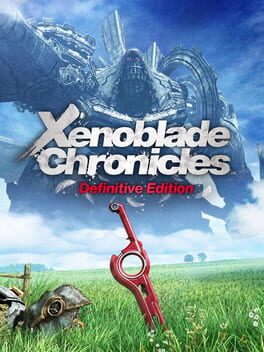48 reviews liked by sein
so, big shocker here considering i log and review japanese role-playing games on the internet, i'm autistic. this is a facet of my life that i wasn't comfortable with for a long time; i remember as a child being confused about what my diagnosis meant, and i remember as a teenager denying my diagnosis. something most people with autism will say is that there's not a lot of art out there that really captures the experiences we have, which often makes it really difficult to compare for people. you're stuck with either comparing yourself to robotic characters, or cheap one dimensional versions of autism written by neurotypicals. while i was playing 358/2 days, all i could think of was that if i had played this when i was younger, it would have really stuck with me as a formative experience, and one that i could use as a point of comparison for how i feel.
roxas is a really odd protagonist; when we're first introduced to him, he can barely speak, and most concepts don't come naturally to him. he's a Nobody, a being that is missing a heart, and therefore isn't supposed to be capable of emotion. it's not that roxas is a husk or has no personality; he's just been stripped of anything resembling a self, and has no frame of reference for what that may be. what's beautiful about days' narrative, to me, is the way roxas' character writing closely resembles concepts like social masking, which were so integral to my life when i was younger. roxas does things because he knows they're expected of him to do. he doesn't understand what a friend is, but he sees how friends are supposed to act, and so that's how he acts. it's all learned behaviors with roxas, the things he thinks of naturally are things he's not "supposed" to. this is shown excellently with the ice cream motif, which stays consistent throughout nearly all the repetition in this game. i really can't believe that nomura is a talented enough character writer to make a bar of ice cream from disney sea into an effective metaphor for life.
358/2 in general touches very well on themes of authority figures defining identity; we see so frequently that roxas and xion are thrown aside or deemed failures for acting in ways that don't benefit the bottom line. their identity is trampled upon and diminished solely because their identity isn't convenient. these kids exist for no reason other than to work, and their job sure doesn't give a damn if they exist. dissociation is touched upon quite a lot as well; it's a very odd blend of stuff that occasionally borders on denpa with childhood melancholy that only KH is really capable of.
so after all that discussion on the story, how's the game? pretty bad! 358/2's comboing doesn't feel very good, the bosses are extremely slow, easy, and tanky, and magic trivializes most sections while also feeling like total shit to use. quite a fair amount of writing has been done about 358/2 as a game that's "bad on purpose", and i think that's giving it too much credit and not enough. the stuff that's bad about 358/2 days isn't the repetitive nature of the missions, nor is it even the trivial nature of many of the missions you receive. the problem is that everything takes way too long and the bosses especially are crazy timesinks. it's forgiveable because this is a game you play in 10-30 min intervals, but some parts of this game are up there as some of the most boring experiences i've ever had with a game. there is a case to make for some ludonarrative elements here, but it's pretty far from feeling intentional.
roxas is a really odd protagonist; when we're first introduced to him, he can barely speak, and most concepts don't come naturally to him. he's a Nobody, a being that is missing a heart, and therefore isn't supposed to be capable of emotion. it's not that roxas is a husk or has no personality; he's just been stripped of anything resembling a self, and has no frame of reference for what that may be. what's beautiful about days' narrative, to me, is the way roxas' character writing closely resembles concepts like social masking, which were so integral to my life when i was younger. roxas does things because he knows they're expected of him to do. he doesn't understand what a friend is, but he sees how friends are supposed to act, and so that's how he acts. it's all learned behaviors with roxas, the things he thinks of naturally are things he's not "supposed" to. this is shown excellently with the ice cream motif, which stays consistent throughout nearly all the repetition in this game. i really can't believe that nomura is a talented enough character writer to make a bar of ice cream from disney sea into an effective metaphor for life.
358/2 in general touches very well on themes of authority figures defining identity; we see so frequently that roxas and xion are thrown aside or deemed failures for acting in ways that don't benefit the bottom line. their identity is trampled upon and diminished solely because their identity isn't convenient. these kids exist for no reason other than to work, and their job sure doesn't give a damn if they exist. dissociation is touched upon quite a lot as well; it's a very odd blend of stuff that occasionally borders on denpa with childhood melancholy that only KH is really capable of.
so after all that discussion on the story, how's the game? pretty bad! 358/2's comboing doesn't feel very good, the bosses are extremely slow, easy, and tanky, and magic trivializes most sections while also feeling like total shit to use. quite a fair amount of writing has been done about 358/2 as a game that's "bad on purpose", and i think that's giving it too much credit and not enough. the stuff that's bad about 358/2 days isn't the repetitive nature of the missions, nor is it even the trivial nature of many of the missions you receive. the problem is that everything takes way too long and the bosses especially are crazy timesinks. it's forgiveable because this is a game you play in 10-30 min intervals, but some parts of this game are up there as some of the most boring experiences i've ever had with a game. there is a case to make for some ludonarrative elements here, but it's pretty far from feeling intentional.
This review contains spoilers
xenoblade 3 is probably the most conflicted i've ever felt about a game. for the first half of the game, i was absolutely loving every moment. they made sidequests feel meaningful! they brought back a lot of gameplay concepts from torna! they introduced all these little tchotchkes to get you to explore the map more thoroughly! sure, the combat is kind of dull compared to 2, but torna was like that too, and torna was great! i felt so strongly that i wanted to do EVERYTHING i could before moving on, and for the most part, i did! but while i was doing this, some cracks started showing. huh, a lot of these classes i'm unlocking feel kinda similar. hm, i'm so overleveled that i can't make hardly any progress on the class system anymore. hey, it's pretty cool and all that moebius members appear even in the sidequests, but why do they basically all say the same stuff? but hey, the exploration and gameplay loop was just so good that i wasn't going to fault the game on a lot of this stuff. what i appreciated about xenoblade 3 was that it was, like torna before it, a game built out of smaller moments of community, where the grander ambitions of the plot are set aside in favor of showcasing different ways of life without explicitly portraying them as superior or inferior to each other. i appreciated that 3 had a very genuine sense of community... until it didn't.
STORY SPOILERS
chapter 5 is where all the strong notes of xc3's storytelling start to disappear for me. upon reaching swordmarch, we're told that their way of life Is Just How Humans Are Supposed To Be, with really awkward and overt messaging about the importance of childbirth. i don't particularly disagree with what this section of the game is saying, but the way it espouses it's views on the subject feels at odds with what i had liked about the game previously, and the sudden forced romantic tension for the entire party just made me really uncomfortable. the way this reveal happens also made me reconsider my feelings about the worldbuilding as a whole. concepts like love and childbirth being completely alien to kevesian and agnian people makes the entire world feel incredibly contrived. you're really telling me that nobody noticed that everything else in the world, including nopon, has a natural birth? nobody ever thought about the concept of aging until now? really? it doesn't help that at this point, the game gives you your last main area, and it's uhhh.. a couple hundred miles of disconnected islands. when i thought about it more, i realized none of the areas had really had the majesty of some of the stand out areas in the first two games. it's honestly a little bewildering to me that monolith had the most freedom they've had since XCX in determining the shape and theme of these areas.. and they just didn't really do much at all with them? the maktha wildwood is pretty cool and inspired, but otherwise these zones pretty much all pale in comparison to areas like uraya, satorl marsh, or even frontier village. the scenes at the end of chapter 5 are still excellent, and are probably the closest thing you get to payoff in this game.. but it just keeps going. chapter 6 is where stuff really starts to fall apart. a lot of xenoblade 3 likes to preach the sanctity of life; how there's beauty in it's impermanence, how it's not wrong to live for things that go beyond you, etc etc. all of this kind of goes out the window, though, because in chapter 6, xc3 becomes a narrative in which death has no meaning. you get several cutscenes in which dead characters get their importance restated, then they get revived. yay! how satisfying! the revival of miyabi, in particular, makes literally no sense, in-universe or otherwise. we get to see noah and mio state that keeping souls away from their peace in death is Wrong, then that immediately doesn't matter because we just recruit those guys instead of seeing them off. this is also where the connections to 1 and 2 start to become more present, and those are also really underwhelming. nia just exposition dumps at you, melia only shows up at pretty much the very end of the game, and the "connection" doesn't really feel as though it brings any sense of finality into the fold. both moebius and the protagonists just kind of deteriorate from this point on, shouting platitudes at each other that don't really mean much. the plot becomes more and more dependent on stuff that doesn't have proper setup or justification. pretty much everything falls off a cliff. i like the ending cutscene, but that's about all i can praise in the last quarter of xc3. even the combat, at this point, is pretty dreadfully boring and repetitive. it's shocking that in a franchise that has handled both narrative and mechanical pay-off so well in the past, xenoblade 3 just doesn't deliver.
STORY SPOILERS
chapter 5 is where all the strong notes of xc3's storytelling start to disappear for me. upon reaching swordmarch, we're told that their way of life Is Just How Humans Are Supposed To Be, with really awkward and overt messaging about the importance of childbirth. i don't particularly disagree with what this section of the game is saying, but the way it espouses it's views on the subject feels at odds with what i had liked about the game previously, and the sudden forced romantic tension for the entire party just made me really uncomfortable. the way this reveal happens also made me reconsider my feelings about the worldbuilding as a whole. concepts like love and childbirth being completely alien to kevesian and agnian people makes the entire world feel incredibly contrived. you're really telling me that nobody noticed that everything else in the world, including nopon, has a natural birth? nobody ever thought about the concept of aging until now? really? it doesn't help that at this point, the game gives you your last main area, and it's uhhh.. a couple hundred miles of disconnected islands. when i thought about it more, i realized none of the areas had really had the majesty of some of the stand out areas in the first two games. it's honestly a little bewildering to me that monolith had the most freedom they've had since XCX in determining the shape and theme of these areas.. and they just didn't really do much at all with them? the maktha wildwood is pretty cool and inspired, but otherwise these zones pretty much all pale in comparison to areas like uraya, satorl marsh, or even frontier village. the scenes at the end of chapter 5 are still excellent, and are probably the closest thing you get to payoff in this game.. but it just keeps going. chapter 6 is where stuff really starts to fall apart. a lot of xenoblade 3 likes to preach the sanctity of life; how there's beauty in it's impermanence, how it's not wrong to live for things that go beyond you, etc etc. all of this kind of goes out the window, though, because in chapter 6, xc3 becomes a narrative in which death has no meaning. you get several cutscenes in which dead characters get their importance restated, then they get revived. yay! how satisfying! the revival of miyabi, in particular, makes literally no sense, in-universe or otherwise. we get to see noah and mio state that keeping souls away from their peace in death is Wrong, then that immediately doesn't matter because we just recruit those guys instead of seeing them off. this is also where the connections to 1 and 2 start to become more present, and those are also really underwhelming. nia just exposition dumps at you, melia only shows up at pretty much the very end of the game, and the "connection" doesn't really feel as though it brings any sense of finality into the fold. both moebius and the protagonists just kind of deteriorate from this point on, shouting platitudes at each other that don't really mean much. the plot becomes more and more dependent on stuff that doesn't have proper setup or justification. pretty much everything falls off a cliff. i like the ending cutscene, but that's about all i can praise in the last quarter of xc3. even the combat, at this point, is pretty dreadfully boring and repetitive. it's shocking that in a franchise that has handled both narrative and mechanical pay-off so well in the past, xenoblade 3 just doesn't deliver.
truly one of the best sequels ever made. kingdom hearts 2 improves massively on every aspect of it’s charming but flawed predecessor. at least on critical, the combat is polished to a sheen, with a really refreshing balance between straight-forward inputs and nuanced resource management. combos are dead simple, but kh2 isn’t really about combos in the first place. instead, the player is forced to consider their resources moment-to-moment, and how to get as much as they can out of everything. a lot of these battles are very tight squeezes (or at least they were for me, as i’m a bit inexperienced w action games), and it’s extremely satisfying to win because of a perfectly timed drive form or clever choice of summon. in this sense, i think KH2 gets a lot of mileage out of its fusion of character action and JRPG mechanics. it’s very approachable on a basic mechanical level, but still offers enough nuance to where players can feel confident that they truly learned a lot about the game’s inner workings over the course of their playthrough. a great rpg is balanced by the player’s knowledge of the game, and a great action game is balanced by the player’s muscle memory of the game, but despite these goals seeming completely adverse to each other, kh2 really manages to combine both into a package that i’m confident would please any fan of either genre. i’m not sure how true this would be on the other difficulties, since critical felt almost exactly perfectly balanced to me, but the good side of this is that the combat fundamentals in kh2 are enjoyable enough on their own that you could really just combo trash mobs for a few hours and have fun. there’s still some fights i think are poorly handled (the final boss being by far the worst fight in the game seems to be a kingdom hearts tradition at this point), but when 95% of the game is THIS fun, i really cannot complain. outside of the combat, i’d still say kh2 is an improvement on the original game, but a more marginal one. gimmick sections don’t run as long and control much better than in kh1, but i wouldn’t really say they’re a highlight. navigating worlds is much less obnoxious because of the increased linearity, but this does come with the trade off of many of these areas feeling like themed hallways. i could see people being turned off by just how direct this game is about what it needs you to do, but honestly, i don’t play these games for environmental gimmicks or platforming, so it just doesn’t bother me. the tighter level design also comes with the benefit of creating more controlled pacing for each world without making each world feel rushed or lacking in content. enemy variety is also very good for the majority of the game, though i did feel that enemies reliant on zoning (mages, snipers) didn’t feel as different from other heartless/nobodies as those enemy types did in kh1. these are very small nitpicks though, the majority of my time in KH2FMCM was an absolute blast.
when it comes to storytelling, i’d also say KH2 is mostly an improvement on KH1, though maybe a little less focused than CoM. the concept of nobodies is a really interesting one, but i think they were either written in a contradictory manner by accident, or the narrative is just unwilling to interrogate their existence. we’re told nobodies are essentially monsters imitating the appearance of humanity, but with the information we get within the narrative, that simply can’t be true. we see time and time again that nobodies are capable of feeling emotion, and are very capable of having human flaws; in everything but name they really may as well be humans, and xemnas makes a fairly strong argument when he questions why sora even cares. sora has a personal connection to the events, sure, but he isn’t aware of that until very late into the story anyways. the organization’s goals are, in my opinion, deeply sympathetic. we know from playing as roxas for the intro how unfair their nonexistence is, we can tell that they’re “real” people in many ways, we see several of them get actual development. it’s strange, because i can’t really tell what they’re trying to get across. if nobodies are really emotionless zombies filled with malice, why go through the effort to make us care about roxas and axel? if they’re human in all but name, why have sora spend the plot trying to kill them mostly just because he was told to by some old wizard? the meaning to sora’s narrative is similarly confusing to me; considering KH1 and CoM were such strongly focused around the development of their main characters, it felt odd to me that I couldn’t really think of a definitive statement KH2 was trying to make when it came to sora. is it about self-acceptance? is it about sora conquering nihilism? i really couldn’t tell you. on the bright side, the disney worlds are far more interesting, and the hints at a greater lore are all really cool. just wish it felt more coherent as a single story.
when it comes to storytelling, i’d also say KH2 is mostly an improvement on KH1, though maybe a little less focused than CoM. the concept of nobodies is a really interesting one, but i think they were either written in a contradictory manner by accident, or the narrative is just unwilling to interrogate their existence. we’re told nobodies are essentially monsters imitating the appearance of humanity, but with the information we get within the narrative, that simply can’t be true. we see time and time again that nobodies are capable of feeling emotion, and are very capable of having human flaws; in everything but name they really may as well be humans, and xemnas makes a fairly strong argument when he questions why sora even cares. sora has a personal connection to the events, sure, but he isn’t aware of that until very late into the story anyways. the organization’s goals are, in my opinion, deeply sympathetic. we know from playing as roxas for the intro how unfair their nonexistence is, we can tell that they’re “real” people in many ways, we see several of them get actual development. it’s strange, because i can’t really tell what they’re trying to get across. if nobodies are really emotionless zombies filled with malice, why go through the effort to make us care about roxas and axel? if they’re human in all but name, why have sora spend the plot trying to kill them mostly just because he was told to by some old wizard? the meaning to sora’s narrative is similarly confusing to me; considering KH1 and CoM were such strongly focused around the development of their main characters, it felt odd to me that I couldn’t really think of a definitive statement KH2 was trying to make when it came to sora. is it about self-acceptance? is it about sora conquering nihilism? i really couldn’t tell you. on the bright side, the disney worlds are far more interesting, and the hints at a greater lore are all really cool. just wish it felt more coherent as a single story.
SMT2 is atypical from most JRPGs in more ways than you would expect. Eschewing a traditional adventure with towns along the way is nothing necessarily new, but the way SMT2 focuses on such a sprawling but interconnected region feels pretty forward thinking. There's obvious inspiration from Western RPGs, but it also evokes Dark Souls or FF12 with its commitment to an immersive world.
There's no doubt that the world itself is incredibly interesting and creative in a lot of ways, much more so than SMT1. From the unique flavor text to the striking aesthetics of each area, Kaneko's creativity really bleeds through constantly. It makes for probably the best aspect of the exploration.
However the exploration itself often ends up as a tedious and extremely frustrating task. I mentioned Dark Souls as an example of an immersive world that SMT2 reminds me of, but Dark Souls both commits to making you move from place to place on foot and has interesting gameplay. SMT2's gameplay is, well, terrible. It's pretty much brainless levels of easy for most of the game but with a ridiculous amount of encounters. I sort of knew this would be the case going in, but even if I was able to get past the combat itself the overall design feels made to waste time to insane degrees. Most of the games runtime is made up of fetch quests which drag you around every corner of the map. I understand wanting you to explore the map, but so much of the game being inane backtracking for little gameplay or story reward gets extremely frustrating.
Unfortunately, this detracts a lot from the story a lot of the time for me as well. This is by far the aspect of the game I've seen praised the most, and I think there is good reason for this. Not only does it have a much more interesting setting than SMT1, it also has a much more interesting alignment system that feels less wishy-washy about what it's trying to say. But the structure hurts it greatly still, as the story is only interesting until it suddenly isn't again. For every long expository dialogue scene there's another 10 hours of wandering around doing random tasks afterwards with little story impact. Aleph is a cool idea for a protagonist, with a really neat twist, but it's also undermined by the fact that there's little to no interactions that build up to the twist or follow up on it. For every interesting plot point I know it will be followed by "Find the 8 Idols of shitfuck to unlock the gate" I got the Law ending and it was interesting and neat but also felt detached from the rest of the game as well, mostly functioning off a cool aesthetic. I think the story had a big chance to make up for the rest of the game for me but I came away from it with little attachment.
I might be giving SMT2 a more positive score than how it actually felt to play but I can see the appeal to such a unique game. There's a really striking creative voice behind a lot of it that even SMT1 didn't really have. I just wish it could have all come together for me to be able to see it as a masterpiece at all.
There's no doubt that the world itself is incredibly interesting and creative in a lot of ways, much more so than SMT1. From the unique flavor text to the striking aesthetics of each area, Kaneko's creativity really bleeds through constantly. It makes for probably the best aspect of the exploration.
However the exploration itself often ends up as a tedious and extremely frustrating task. I mentioned Dark Souls as an example of an immersive world that SMT2 reminds me of, but Dark Souls both commits to making you move from place to place on foot and has interesting gameplay. SMT2's gameplay is, well, terrible. It's pretty much brainless levels of easy for most of the game but with a ridiculous amount of encounters. I sort of knew this would be the case going in, but even if I was able to get past the combat itself the overall design feels made to waste time to insane degrees. Most of the games runtime is made up of fetch quests which drag you around every corner of the map. I understand wanting you to explore the map, but so much of the game being inane backtracking for little gameplay or story reward gets extremely frustrating.
Unfortunately, this detracts a lot from the story a lot of the time for me as well. This is by far the aspect of the game I've seen praised the most, and I think there is good reason for this. Not only does it have a much more interesting setting than SMT1, it also has a much more interesting alignment system that feels less wishy-washy about what it's trying to say. But the structure hurts it greatly still, as the story is only interesting until it suddenly isn't again. For every long expository dialogue scene there's another 10 hours of wandering around doing random tasks afterwards with little story impact. Aleph is a cool idea for a protagonist, with a really neat twist, but it's also undermined by the fact that there's little to no interactions that build up to the twist or follow up on it. For every interesting plot point I know it will be followed by "Find the 8 Idols of shitfuck to unlock the gate" I got the Law ending and it was interesting and neat but also felt detached from the rest of the game as well, mostly functioning off a cool aesthetic. I think the story had a big chance to make up for the rest of the game for me but I came away from it with little attachment.
I might be giving SMT2 a more positive score than how it actually felt to play but I can see the appeal to such a unique game. There's a really striking creative voice behind a lot of it that even SMT1 didn't really have. I just wish it could have all come together for me to be able to see it as a masterpiece at all.
Marvel's Spider-Man
2018
I won't be the first in line to praise the Batman Arkham series as the pinnacle of the medium or anything, but there's something to be said about how they do seem to hone in on some specific ideas. I can feel a genuine respect for Batman as a character, attention paid to how his gadgets work, interesting scenarios with his enemies and at least very competent combat.
I say all this to say that Spider-Man doesn't really have this feeling at all. I don't mean to say that it's the worst game ever, but it also feels like Insomniac lacked any spark of creativity or even the will to at least make something thrilling and fun. Not every part is bad, but the sheer amount of parts of this game that feel mediocre reflect the worst aspects of AAA development.
I haven't played one of these big budget Sony games in a while, so I was immediately taken aback by the frustrating handholding and lack of trust in the player to do anything on their own. Once I pushed past all of the obnoxious tutorializing, I did make a genuine effort to dig into the gameplay, yet I still find it pretty unrewarding. Spider-Man's combat is just plain uninteresting most of the time. His basic 4 hit combo feeling gross on it's own is one thing, so it's clear the gadgets are the emphasis, right? It seems like Insomniac thought that this was their way to add depth, but it also fails. The gadgets are all very similar to each other, some felt like they should only be used on a whim like the drone or tripwire ones which still end up being used identically to the other ones. More enemy varieties that need different gadgets to be taken down would help, but this won't mesh with the progression system (I'll get back to this). The funniest part is how missions will just tell you to use a certain gadget to fulfill a condition as if just bothering to dust off the drones for once is some kind of challenge run lmao.
Even past all of this, some of it just doesn't function very well. The dodge system isn't broken, but it also isn't polished at all. Enemy wind-ups are made fairly obvious, but the weird timing particularly on melee attacks makes just spamming dodge the ideal option. Melee enemies will often change speeds between their wind-up and attack, which can be pretty confusing and defeats the point of Spidey's agility and senses.
This emphasis on breadth of mechanics rather than depth of mechanics rears its head even more in other ways. The aforementioned progression reeks of AAA broad-appeal approach. "We can't design enemies around gadgets, because players may not care to get those gadgets. But we also want people who do want them to get them, so put activities that give you crafting points everywhere. But we also still want everyone to be able to just run into them so make it really easy to just naturally get the materials to get upgrades."
A few conflicts of interest there huh?
Getting a bit all over the place here but the point is that these activities are simultaneously unrewarding while also hurting other parts of the game. There's 30 different varieties of open world check box things to do, yet they rarely feel unique from one another. Either chase a thing or fight some guys or both, usually in the same arena every time for the same rewards. The backpacks are the closest to providing some real value, which is probably why I got all of them while also Petering out after my 5th fight with convicts or demons or sable or whatever. Credit where credit is due, the swinging makes these more fun than they should be. It was probably the area of the game with the most focus, and while it probably isn't the best Spider-Man traversal it does make taking detours something that feels quite natural and enjoyable. I also appreciate how many of the combat encounters are just naturally in the open world even though they don't make for the best arenas.
The mostly decent plot is decent but can't escape from the AAA "overload of things" in a few ways. I appreciate a lot of aspects of it, Martin Li is an interesting character and Peter's relationship with Doc Ock works quite well. Obviously the May scene at the end is great. Yet the AAA rushjob yet again permeates throughout with how choppy the pacing is. So much time is spent on Mister Negative and the demons, but it leads to a weak twist and weak conclusion as he ends up getting backseated for Doc Ock. Otto forming the Sinister 6 feels like something that happens on a whim more than anything, with like one scene before this happens. It feels like Insomniac figured we already know these characters are villains and didn't bother to explore the setup as much as they should. It ends up feeling pretty disjointed. I don't think it helps that the spectacle itself is a lot weaker than I expected. Getting back to gameplay here but the same spam web shots then press square loop for every boss feels like it undermines their uniqueness, and the flat boring arenas don't help either.
Much has been made of this game's worship of the NYPD. I don't really have anything interesting to add, but I will say that it was more eye-rolling to me than a dealbreaker. It's bad but at the same time it's nothing out of the ordinary for comics. However the odiously liberal worldview does make Spider-Man a lot less likable in that regard too. He feels less like a "neighborhood" hero than ever, just like another Batman type who flies around beating up criminals except with epic funny quips about how they should try getting real jobs. Like everything you do in this game is dealing with some sort of criminal attack and not the fun everyday stuff that comes with a more grounded hero like Spider-Man. JJJ and Silver Sable are also examples of why this portrayal is so annoying. JJJ is supposed to be some sort of right-wing crank podcast host, and Sable runs an authoritarian militia, but the game kinda operates that these people are only bad once they start hating on Spider-Man and what they do is pretty much okay otherwise. It's a shame because I really think Yuri Lowenthal's performance would've fit a more fun and grounded Spider-Man a lot more but he's constantly forced to just tell criminals that they should love jail and hate drugs. I'm not saying he hasn't been portrayed like that plenty of times but I still feel like this game chose the wrong direction.
I've written a more rambling negative review than I intended for a game I described to people as the "textbook definition of mid" but I've also expunged all of my thoughts about why this game makes me kinda sad now. I quite like Spider-Man and yet this just completely lacked his appeal for me for the most part. I really question if Insomniac ever will understand that, and even if they did, would the suits even let it happen?
The Arkham games are alright I guess.
I say all this to say that Spider-Man doesn't really have this feeling at all. I don't mean to say that it's the worst game ever, but it also feels like Insomniac lacked any spark of creativity or even the will to at least make something thrilling and fun. Not every part is bad, but the sheer amount of parts of this game that feel mediocre reflect the worst aspects of AAA development.
I haven't played one of these big budget Sony games in a while, so I was immediately taken aback by the frustrating handholding and lack of trust in the player to do anything on their own. Once I pushed past all of the obnoxious tutorializing, I did make a genuine effort to dig into the gameplay, yet I still find it pretty unrewarding. Spider-Man's combat is just plain uninteresting most of the time. His basic 4 hit combo feeling gross on it's own is one thing, so it's clear the gadgets are the emphasis, right? It seems like Insomniac thought that this was their way to add depth, but it also fails. The gadgets are all very similar to each other, some felt like they should only be used on a whim like the drone or tripwire ones which still end up being used identically to the other ones. More enemy varieties that need different gadgets to be taken down would help, but this won't mesh with the progression system (I'll get back to this). The funniest part is how missions will just tell you to use a certain gadget to fulfill a condition as if just bothering to dust off the drones for once is some kind of challenge run lmao.
Even past all of this, some of it just doesn't function very well. The dodge system isn't broken, but it also isn't polished at all. Enemy wind-ups are made fairly obvious, but the weird timing particularly on melee attacks makes just spamming dodge the ideal option. Melee enemies will often change speeds between their wind-up and attack, which can be pretty confusing and defeats the point of Spidey's agility and senses.
This emphasis on breadth of mechanics rather than depth of mechanics rears its head even more in other ways. The aforementioned progression reeks of AAA broad-appeal approach. "We can't design enemies around gadgets, because players may not care to get those gadgets. But we also want people who do want them to get them, so put activities that give you crafting points everywhere. But we also still want everyone to be able to just run into them so make it really easy to just naturally get the materials to get upgrades."
A few conflicts of interest there huh?
Getting a bit all over the place here but the point is that these activities are simultaneously unrewarding while also hurting other parts of the game. There's 30 different varieties of open world check box things to do, yet they rarely feel unique from one another. Either chase a thing or fight some guys or both, usually in the same arena every time for the same rewards. The backpacks are the closest to providing some real value, which is probably why I got all of them while also Petering out after my 5th fight with convicts or demons or sable or whatever. Credit where credit is due, the swinging makes these more fun than they should be. It was probably the area of the game with the most focus, and while it probably isn't the best Spider-Man traversal it does make taking detours something that feels quite natural and enjoyable. I also appreciate how many of the combat encounters are just naturally in the open world even though they don't make for the best arenas.
The mostly decent plot is decent but can't escape from the AAA "overload of things" in a few ways. I appreciate a lot of aspects of it, Martin Li is an interesting character and Peter's relationship with Doc Ock works quite well. Obviously the May scene at the end is great. Yet the AAA rushjob yet again permeates throughout with how choppy the pacing is. So much time is spent on Mister Negative and the demons, but it leads to a weak twist and weak conclusion as he ends up getting backseated for Doc Ock. Otto forming the Sinister 6 feels like something that happens on a whim more than anything, with like one scene before this happens. It feels like Insomniac figured we already know these characters are villains and didn't bother to explore the setup as much as they should. It ends up feeling pretty disjointed. I don't think it helps that the spectacle itself is a lot weaker than I expected. Getting back to gameplay here but the same spam web shots then press square loop for every boss feels like it undermines their uniqueness, and the flat boring arenas don't help either.
Much has been made of this game's worship of the NYPD. I don't really have anything interesting to add, but I will say that it was more eye-rolling to me than a dealbreaker. It's bad but at the same time it's nothing out of the ordinary for comics. However the odiously liberal worldview does make Spider-Man a lot less likable in that regard too. He feels less like a "neighborhood" hero than ever, just like another Batman type who flies around beating up criminals except with epic funny quips about how they should try getting real jobs. Like everything you do in this game is dealing with some sort of criminal attack and not the fun everyday stuff that comes with a more grounded hero like Spider-Man. JJJ and Silver Sable are also examples of why this portrayal is so annoying. JJJ is supposed to be some sort of right-wing crank podcast host, and Sable runs an authoritarian militia, but the game kinda operates that these people are only bad once they start hating on Spider-Man and what they do is pretty much okay otherwise. It's a shame because I really think Yuri Lowenthal's performance would've fit a more fun and grounded Spider-Man a lot more but he's constantly forced to just tell criminals that they should love jail and hate drugs. I'm not saying he hasn't been portrayed like that plenty of times but I still feel like this game chose the wrong direction.
I've written a more rambling negative review than I intended for a game I described to people as the "textbook definition of mid" but I've also expunged all of my thoughts about why this game makes me kinda sad now. I quite like Spider-Man and yet this just completely lacked his appeal for me for the most part. I really question if Insomniac ever will understand that, and even if they did, would the suits even let it happen?
The Arkham games are alright I guess.
chain of memories is a really interesting game conceptually; it was made as a fairly direct gap-filler to lead into KH2, but it also was in response to demand for a portable version of kh1, and it wanted to make a good explanation in-universe for why progression gets reset from KH1 to KH2. ignoring the fact that the last bit is a very funny reason to make an entire game, this mish-mash of goals creates a very odd playing experience. i felt that the focus in the story on jumbled and distorted memories created a fairly strong justification for the repeated worlds and bosses from KH1, while still recontextualizing those moments in a more interesting way. the semi-randomized dungeon crawler elements are also a really cool way to represent the fickle nature of memory through gameplay, and it's very fun to get limited customization of the room layouts depending on the situation. unfortunately, the focus on memories also extends to the combat system, which is very messy and definitely needed a lot of tuning. contrary to what many people say, i don't actually think splitting actions into cards is the problem here (reverse/rebirth proves this, imo). the bigger issue is the deckbuilding, which feels totally at odds with RPG progression and makes COM oscillate wildly between completely trivial combat and absurdly difficult combat. i tend to be a fan of experimental and "imbalanced" progression systems (the junction system in ff8 is a favorite), but COM's cards feel poorly accounted for; the game offers you relatively few guaranteed cards, and those it gives you are likely going to be pretty far from the cornerstones of your deck. this ends up meaning the boss design needs to account for too many potential playstyles, so you get lots of inflated health bars and lots of bosses that are designed around playing defensively and waiting until they have no chance to counterattack. i think it's actually very charming and cool that many of the bosses play by the same ruleset the player does, but because COM has no idea what cards you have, the only real surefire strategy against many bosses is waiting for them to waste their cards on sleights and catching them reloading over and over. if the progression was not as reliant on lucky pulls from packs, these bosses would be able to have more reliable and interesting counterplay, but unfortunately the systems here just don't allow for that. these incredibly boring and drawn out encounters are most noticeable with the final boss of the main game, where the most reliable strategy i could find was just to parry every attack he throws out with a 0 card, then use the cloud summon to chip at him a few times, repeat repeat repeat. this took about 10 minutes, and might be the most boring boss fight i've ever played.
reverse/rebirth fixes basically all of the issues i mentioned above by just giving you set decks for each floor, which makes most of the fights far more interesting. wayyy faster and less reliant on cheese, i love the emphasis on card dueling.
the story in COM is actually really great by the way. i could personally tell it was written after KH2, but it's still a pretty interesting story that explores the inner psychology of both the protagonists a little bit. there's a lot of cool hints at future games (i think, at least) and the addition of organization 13 is just great. i had found the overemphasis on disney elements in the story of kh1 to be a bit frustrating, so COM's story was a great change of pace.
reverse/rebirth fixes basically all of the issues i mentioned above by just giving you set decks for each floor, which makes most of the fights far more interesting. wayyy faster and less reliant on cheese, i love the emphasis on card dueling.
the story in COM is actually really great by the way. i could personally tell it was written after KH2, but it's still a pretty interesting story that explores the inner psychology of both the protagonists a little bit. there's a lot of cool hints at future games (i think, at least) and the addition of organization 13 is just great. i had found the overemphasis on disney elements in the story of kh1 to be a bit frustrating, so COM's story was a great change of pace.
the internet was a paradigm shift, wasn't it? since the late 90s we've seen an increasing amount of discussion around fact and fiction becoming muddied, with the distinction seemingly being irrelevant to many. information is as free as it gets, but the direct consequences for misinformation are minimal. of course, there's no end of works focusing on the subject of truth in the information age; in this very medium you have one of the most prescient and unique statements on the matter with MGS2. the persona 2 duology, however, is unique in that a lot of what it has to say feels before it's time. this is certainly an internet-age set of games, but calling them cyberpunk in any way would be a misnomer. persona 2 really is concerned about the broader societal implications that come about from people being willing and able to believe almost anything, and it directs that focus towards the physical world. in a lot of ways, P2 feels responsive towards the increasing prevalence of conspiracy theories in pop culture (a lot of popular conspiracies are even used as inspiration for plot beats in innocent sin), and i think P2 takes a unique stance in that they don't flat out deny that these things are worth believing in or looking into. rumors come to life, but rumors do have to start from somewhere; there's shreds of truth in any lie.
P2, and especially EP, puts a ton of emphasis on allowing the city to feel lived-in and breathing. for anything you do, there's new dialogue everywhere, and the main progression gimmick (rumors coming to life at the player's will) is utilized in a lot of clever ways to achieve that goal. persona games are known for being text-heavy in general, but i wouldn't be surprised if these two games had some of the larger scripts in the franchise, because every story moment basically changes the whole city. in a game all about listening to the pulse of the city, this feels very appropriate, creating a much stronger sense of immersion than you'd expect for a game like this.
now for stuff focused solely on EP:
out of all of the traditional storytelling archetypes, probably the most common for a JRPG to use is the coming of age story. this makes a lot of sense, logistically; most video game consumers are teenaged, most JRPG protagonists are teenaged, and the power fantasy typically inherent to the genre is about starting from a weak position and growing to be strong. eternal punishment doesn't have these sorts of goals, and it's a lot more engaging for it. EP's cast is a group of adults, and you'd be forgiven for thinking at the beginning of the game that this cast doesn't have much room to grow. indeed, EP's characters definitely do not "grow up" in the way typical for JRPG writing; these characters start out pretty divided and uncomfortable with each other, but there isn't a big climax where they confront their fears all at once and become a team. instead, EP uses optional dialogue to subtly paint a portrait of each of it's cast members and has them slowly begin to open up over time. it's rewarding and immersive to have these characters actually gain new contacts due to these little nuggets of development, and it's a much more lifelike approach to party development than you see in more traditional narratives. a key concept this game has about identity is that it's self-determined; people aren't simply on a search to discover how they really are, but are ever-changing and create the path they walk. i think integrating this into the story by making much of the development up to the player is exceptionally clever. it's a fairly common statement among writers attempting subversive character writing to say that human beings don't have arcs. i feel that this is often used to justify uninteresting or directionless character writing, but in EP it feels like a pretty considered thesis for the game's writing. i guess a better way of saying it is that people don't just have arcs, they don't grow up at one specific point. development here is more like a stream, ebbing and flowing.
STORY SPOILERS HERE
all that being said, eternal punishment was greenlit for a very specific reason; to give an alternate perspective to tatsuya. i also felt that this was done quite well. tatsuya was about as well-characterized as a silent protagonist could get in IS, i felt, but getting a voice definitely helps him. his self-imposed suicide mission is a great narrative hook, and the reasoning behind his existential guilt is one of the best reveals of the story. tatsuya commits (yet another) innocent sin by refusing to forget his friends again, and it's not surprising that he'd try to shoulder the burden to protect their reality. tatsuya is ultimately a character whose greatest weakness is his protective instinct, but through the comfort of the main cast he's able to get past that and use his sins as blessings. it's beautiful payoff for a story that's rife with personal loss and seemingly hopeless odds.
in a lot of ways, P2 reminds me of panzer dragoon saga. both are these hugely ambitious games from around the same time that are driven by the urge to do something different. when i played innocent sin, i felt that that game's attempts at novelty wore thin; the character writing didn't feel dense, the combat was far too easy, and the deviations from standards felt poorly justified by the narrative. although there are still things i dislike in EP, the overall package feels more cohesive. rumors are more immersive and offer more variety, character dialogue is more interesting, the combat and character progression is more difficult but offers more interesting decisionmaking. definitely a huge improvement.
P2, and especially EP, puts a ton of emphasis on allowing the city to feel lived-in and breathing. for anything you do, there's new dialogue everywhere, and the main progression gimmick (rumors coming to life at the player's will) is utilized in a lot of clever ways to achieve that goal. persona games are known for being text-heavy in general, but i wouldn't be surprised if these two games had some of the larger scripts in the franchise, because every story moment basically changes the whole city. in a game all about listening to the pulse of the city, this feels very appropriate, creating a much stronger sense of immersion than you'd expect for a game like this.
now for stuff focused solely on EP:
out of all of the traditional storytelling archetypes, probably the most common for a JRPG to use is the coming of age story. this makes a lot of sense, logistically; most video game consumers are teenaged, most JRPG protagonists are teenaged, and the power fantasy typically inherent to the genre is about starting from a weak position and growing to be strong. eternal punishment doesn't have these sorts of goals, and it's a lot more engaging for it. EP's cast is a group of adults, and you'd be forgiven for thinking at the beginning of the game that this cast doesn't have much room to grow. indeed, EP's characters definitely do not "grow up" in the way typical for JRPG writing; these characters start out pretty divided and uncomfortable with each other, but there isn't a big climax where they confront their fears all at once and become a team. instead, EP uses optional dialogue to subtly paint a portrait of each of it's cast members and has them slowly begin to open up over time. it's rewarding and immersive to have these characters actually gain new contacts due to these little nuggets of development, and it's a much more lifelike approach to party development than you see in more traditional narratives. a key concept this game has about identity is that it's self-determined; people aren't simply on a search to discover how they really are, but are ever-changing and create the path they walk. i think integrating this into the story by making much of the development up to the player is exceptionally clever. it's a fairly common statement among writers attempting subversive character writing to say that human beings don't have arcs. i feel that this is often used to justify uninteresting or directionless character writing, but in EP it feels like a pretty considered thesis for the game's writing. i guess a better way of saying it is that people don't just have arcs, they don't grow up at one specific point. development here is more like a stream, ebbing and flowing.
STORY SPOILERS HERE
all that being said, eternal punishment was greenlit for a very specific reason; to give an alternate perspective to tatsuya. i also felt that this was done quite well. tatsuya was about as well-characterized as a silent protagonist could get in IS, i felt, but getting a voice definitely helps him. his self-imposed suicide mission is a great narrative hook, and the reasoning behind his existential guilt is one of the best reveals of the story. tatsuya commits (yet another) innocent sin by refusing to forget his friends again, and it's not surprising that he'd try to shoulder the burden to protect their reality. tatsuya is ultimately a character whose greatest weakness is his protective instinct, but through the comfort of the main cast he's able to get past that and use his sins as blessings. it's beautiful payoff for a story that's rife with personal loss and seemingly hopeless odds.
in a lot of ways, P2 reminds me of panzer dragoon saga. both are these hugely ambitious games from around the same time that are driven by the urge to do something different. when i played innocent sin, i felt that that game's attempts at novelty wore thin; the character writing didn't feel dense, the combat was far too easy, and the deviations from standards felt poorly justified by the narrative. although there are still things i dislike in EP, the overall package feels more cohesive. rumors are more immersive and offer more variety, character dialogue is more interesting, the combat and character progression is more difficult but offers more interesting decisionmaking. definitely a huge improvement.
kingdom hearts is probably the most controversial JRPG franchise of all time. it's very common to see non-fans say they can't take it seriously and it's influence ruined franchises they prefer, and it is equally common to see fans say it changed their life and brings them to tears to think about. i think i come somewhere in the middle; kingdom hearts 1 is a pretty moving and cute story for it's target demographic, but it has a lot of clear growing pains that i feel could have been better addressed. the story is probably what i'd single out as the biggest strong point of kh1, it's a very pleasant little story preaching self-belief and perseverance with a lot of fun character moments. the disney stuff, for me, doesn't exactly help but doesn't really hurt. donald and goofy are enjoyable party members that don't really feel too far off from your standard comic relief party members in final fantasy games such as rikku or cait sith. i'm not sure if i'd say the friendship of the party feels especially believable by the end, but it works for the type of story kh1is trying to get across. the original characters are all also pretty fun; i'm not much of a fan of sora, since he feels very stock shonen protagonist, but riku and kairi are both fairly interesting characters. the (unintentional?) gay subtext with sora and riku is definitely the most interesting part of the character interactions in this game, it really oozes out of almost everything riku says and makes things between him and sora a bit more complicated than it initially seems. i felt that the big weakness of kh1's story came down largely to it's focus on the disney elements. many of the worlds are very stripped down versions of movie plots, which aren't really satisfying on their own and aren't really great fanservice, imo. several of my favorite disney movies actually are in kh1, but the only one i felt really happy with the representation for was nightmare before christmas. the good part of this is that the worlds are pretty short and breezy, with very little story, so if you aren't much of a disney fan they aren't tedious or anything. the bad part of this is that the overarching plot still does involve a lot of disney elements up until the last quarter or so, so if you want more meat you're going to be waiting for a while.
where i'm more mixed on kh1 is the gameplay. i played on proud mode, because i wanted to fully engage with the combat and uh... that was a mistake! not because i had too much trouble with the combat, but because kh1 has pretty minimal depth to it's combat, and the boss design can get downright atrocious. the pot centipede, giant ursula, genie jafar, chernabog, basically all of the final bosses, dragon maleficent.. there's so many fights in this game that i wouldn't call hard necessarily but would really call cheesy or boring. for most of the larger bosses the recommended strategy from experienced players is to just mash on them with aero/ra/ga and spam heals when you can with leaf bracer. i only really struggled with a handful of fights, but i would have a lot of trouble naming fights that i struggled on where the difference maker ended up being my skill rather than missing a specific spell or not using a specific summon that trivialized it. things reach a head after the first visit to hollow bastion, because beyond that point kh1 really loves throwing bosses with inflated health bars at you, and in the worst cases, those bosses have a vulnerability window of maybe 2-3 attacks if you're playing fair with them. if that sounds obnoxious and boring, that's because it is, so the recommended strategy for most of these bosses is to make sure to get aeroga and curaga and just wail on them. the room of waves of heartless being spawned on you is also just atrocious, pure chaos with very little counterplay beyond tanking. smart, aggressive play simply does not feel well-incentivized in kh1. i'd say the real peak of the game feeling challenging in a fun way would be the mid-game before you get leaf bracer, and the last fight on the first visit to hollow bastion. that fight kicked my ass a good 4 or 5 times, but it was engaging, fast, lethal, and made me want to get better. i can only hope that future kh games follow that precedent.
asides:
the ff characters in this game, imo, often didn't really act like themselves. squall, i mean leon, especially felt mischaracterized. not a big deal because the story isn't focused on them or anything but as a big fan of 8 i found it a little sad.
music is incredible, i'd mention the heartless theme, kairi's theme, the main theme, and obviously simple and clean as highlights. yoko shimomura is a great fit here, since she's experienced in music for kid's games from the mario rpg series but also has the range for more serious and heartfelt tracks.
the animation is surprisingly very high quality and emotive for a ps2 game, it seems like they really wanted to lean into disney animation principles. genie donald and goofy are all highlights in that regard
where i'm more mixed on kh1 is the gameplay. i played on proud mode, because i wanted to fully engage with the combat and uh... that was a mistake! not because i had too much trouble with the combat, but because kh1 has pretty minimal depth to it's combat, and the boss design can get downright atrocious. the pot centipede, giant ursula, genie jafar, chernabog, basically all of the final bosses, dragon maleficent.. there's so many fights in this game that i wouldn't call hard necessarily but would really call cheesy or boring. for most of the larger bosses the recommended strategy from experienced players is to just mash on them with aero/ra/ga and spam heals when you can with leaf bracer. i only really struggled with a handful of fights, but i would have a lot of trouble naming fights that i struggled on where the difference maker ended up being my skill rather than missing a specific spell or not using a specific summon that trivialized it. things reach a head after the first visit to hollow bastion, because beyond that point kh1 really loves throwing bosses with inflated health bars at you, and in the worst cases, those bosses have a vulnerability window of maybe 2-3 attacks if you're playing fair with them. if that sounds obnoxious and boring, that's because it is, so the recommended strategy for most of these bosses is to make sure to get aeroga and curaga and just wail on them. the room of waves of heartless being spawned on you is also just atrocious, pure chaos with very little counterplay beyond tanking. smart, aggressive play simply does not feel well-incentivized in kh1. i'd say the real peak of the game feeling challenging in a fun way would be the mid-game before you get leaf bracer, and the last fight on the first visit to hollow bastion. that fight kicked my ass a good 4 or 5 times, but it was engaging, fast, lethal, and made me want to get better. i can only hope that future kh games follow that precedent.
asides:
the ff characters in this game, imo, often didn't really act like themselves. squall, i mean leon, especially felt mischaracterized. not a big deal because the story isn't focused on them or anything but as a big fan of 8 i found it a little sad.
music is incredible, i'd mention the heartless theme, kairi's theme, the main theme, and obviously simple and clean as highlights. yoko shimomura is a great fit here, since she's experienced in music for kid's games from the mario rpg series but also has the range for more serious and heartfelt tracks.
the animation is surprisingly very high quality and emotive for a ps2 game, it seems like they really wanted to lean into disney animation principles. genie donald and goofy are all highlights in that regard
thracia is a game that really wants you to reexamine some behaviors and thoughts that you may have considered intrinsic to playing video games. is it worth it to strive for perfection? is fairness really the end goal of difficulty? is there really no honor in cheating? the most common statement you'll see about this game is that it's brutal, and the second most common statement you'll see about this game is that it's "just unfair to new players, but not that hard". neither of these statements are quite true; thracia is a very difficult game, and it is especially unkind to blind players, but it's paradoxically very effectively balanced. for the most part, this isn't a game where you're being put up against enemies way stronger than you, or a game where the enemies are given tons of toys you can't have. thracia is about trying to turn every disadvantage you're given into an advantage, and trying to win by choosing not to play within what the game presents as it's "rules" at all. to me, thracia feels very genuinely revolutionary in a way the prior 4 FEs, all also about revolutions, did not. the fatigue system means you are not allowed to be picky about your units, and you do not get your usual assortment of nobles and world-renown warriors. instead, you get a heck of a lot of bandits and sellswords, not to mention a handful of priests and illegitimate children. speaking of those bandits and priests, they are universally your MVPs in thracia. thracia has a very strong sense of materialism, both in it's plot and mechanics, which means that stealing and capturing weapons is simply your only option for acquiring weapons and money. this means that utility units are much stronger than in any other fire emblem game; not only because you have to steal to survive, but also because disarming is often a better option than just directly killing. why should i murder reinhardt when if i berserk him then sleep him i can get him to thin his troops and steal his gear? why should i bother fighting all these mages when i can send lifis in and just take all their books instead? this stuff brings a really interesting sense of resource management to thracia, and means that the player has theoretically nearly infinite opportunities to get good weapons, but has to gauge whether or not it's worth going for them each time they fight. this is furthered by making villages occasionally very difficult extras to get, and the addition of missable gaiden chapters help this greatly too. thracia has a very strong conception of risk vs reward; to simply clear the maps, you often have very easy and simple options, but simply clearing the maps is rarely enough. you are forced to take gambles to survive, but you are never expected to be perfect. a 100% playthrough of this game would likely increase the playtime by more than half off resets alone, but i don't think that that is a mistake or a negative. to me, thracia is rather genius in that it puts so much decisionmaking in the player's hands, and so little of that decisionmaking directly relates to killing. a good amount of your units can reliably crit, so cutting through enemies isn't something you need to worry too much about.. instead, what you're concerned with is not bleeding out on resources, making sure your units can avoid status effect spam, making sure you can have your units available when you need them. is it bullshit that you can be hit from halfway across the map by a sleep staff in enemy phase? sure. but i can silence that staffer, i can berserk them, i can steal their sleep staff.. you just have so many options, and just killing them is usually the least effective and least interesting one! in another strategy game, this sort of thing would be considered cheese, but here, it's life. you have the option to play "honorably" and fight like a man, sure, but are the enemies fighting honorably? hell no. fuck em. to me, this is exactly the sort of difficulty a strategy game should have. extremely lethal, extremely diverse, and not fair at all... but filled with options for interesting decisionmaking instead of just overstatting brute force ai. there is very little division between what you can do and what the ai can do. the defining difference is that you are not a bot.
STORY SPOILERS AHEAD
storytelling in thracia is another big strength. i think that the very restrained focus here helps a lot with character building and thematics. prior fire emblem games were all extremely grand continent-spanning high fantasy stories, which isn't a problem for those games at all, but i do feel that occasionally the macro scale of those stories meant that we could not feel the struggles of individual characters so closely. even mystery of the emblem, which does have a similar style of gameplay and a comparable story to thracia, is so zoomed out that i could hardly tell you what marth or caeda are feeling about what's happening. by contrast, leif is excellently built up, undergoing strong development through many losses. leif is someone who was born into natural conditions fit for traditional heroism, but is also someone who is given plenty reason to believe that his rebellion will only crush hope. prior lords had generally been characterized by naivety and great kindness; marth had been unable to accept that his allies had turned against him, sigurd had so much faith in the goodness of others that he ended up blind to conspiracy, celica loved alm so much that she was willing to suffer and sacrifice her cause for his sake. leif is anything but naive, and his kindness is often hardly virtuous. leif is racked with self-doubt at every turn, and when he is not, his ignorance and rash attitude bites him in the ass. he wants to save his people and repay the debts of his childhood at all costs, even though it has him taking on more than he can handle. his nobility alienates him from causes that much of his army is fighting for. many of his flaws would make him seem not so dissimilar from the friegian generals he's up against, but the important part is that leif learns from his mistakes as time goes on, and he never gives up. by the end of the game, his title of sage-lord doesn't feel farfetched. the enemy factions in thracia are also very well characterized. one detail i especially like is that the infamous thracian dracoknights rarely show up at all unless they're trying to seize an objective before you, and they're extremely lazy units. they don't leave their posts until you get in their range or split up your units, and they always leave the map when you kill their commander. this gets across very well that south thracia has little passion for the war they've been paid to fight in, they only see their alliance with the empire opportunistically. my only complaint with the story is that the final few chapters feel like a bit of afterthought or obligation story-wise, the audience just doesn't get a lot of in-universe justification for why the strategy is being executed the way it is, probably because it diverges from genealogy at this point. saving eyvel and defeating raydrik both make sense, but the loptrian church has very little personal relevance to the cast here. it didn't bother me because the last stretch of the game is sheer excellence from a gameplay perspective, but i do feel it's worth noting.
some minor notes i couldn't fit in here:
door key softlocks are really dumb and probably the single worst part of this game
chapter 12x and 14x are objectively quite poorly designed chapters for very different reasons; 12x is a chapter that feels almost deliberately designed for you to not engage with playing it, and 14x is a fog of war chapter that has long range troops and random pegasus knight spawns which can capture your units but you can't capture back. i think 14x is still effective narratively, but it's one of the only moments where i felt that thracia was sadistic in a way the player could not appropriately respond to or work around without foreknowledge or with clever strategy.
the variety in objectives is a huge plus for thracia and something i wish had been implented sooner. escape maps and survival maps are both awesome
STORY SPOILERS AHEAD
storytelling in thracia is another big strength. i think that the very restrained focus here helps a lot with character building and thematics. prior fire emblem games were all extremely grand continent-spanning high fantasy stories, which isn't a problem for those games at all, but i do feel that occasionally the macro scale of those stories meant that we could not feel the struggles of individual characters so closely. even mystery of the emblem, which does have a similar style of gameplay and a comparable story to thracia, is so zoomed out that i could hardly tell you what marth or caeda are feeling about what's happening. by contrast, leif is excellently built up, undergoing strong development through many losses. leif is someone who was born into natural conditions fit for traditional heroism, but is also someone who is given plenty reason to believe that his rebellion will only crush hope. prior lords had generally been characterized by naivety and great kindness; marth had been unable to accept that his allies had turned against him, sigurd had so much faith in the goodness of others that he ended up blind to conspiracy, celica loved alm so much that she was willing to suffer and sacrifice her cause for his sake. leif is anything but naive, and his kindness is often hardly virtuous. leif is racked with self-doubt at every turn, and when he is not, his ignorance and rash attitude bites him in the ass. he wants to save his people and repay the debts of his childhood at all costs, even though it has him taking on more than he can handle. his nobility alienates him from causes that much of his army is fighting for. many of his flaws would make him seem not so dissimilar from the friegian generals he's up against, but the important part is that leif learns from his mistakes as time goes on, and he never gives up. by the end of the game, his title of sage-lord doesn't feel farfetched. the enemy factions in thracia are also very well characterized. one detail i especially like is that the infamous thracian dracoknights rarely show up at all unless they're trying to seize an objective before you, and they're extremely lazy units. they don't leave their posts until you get in their range or split up your units, and they always leave the map when you kill their commander. this gets across very well that south thracia has little passion for the war they've been paid to fight in, they only see their alliance with the empire opportunistically. my only complaint with the story is that the final few chapters feel like a bit of afterthought or obligation story-wise, the audience just doesn't get a lot of in-universe justification for why the strategy is being executed the way it is, probably because it diverges from genealogy at this point. saving eyvel and defeating raydrik both make sense, but the loptrian church has very little personal relevance to the cast here. it didn't bother me because the last stretch of the game is sheer excellence from a gameplay perspective, but i do feel it's worth noting.
some minor notes i couldn't fit in here:
door key softlocks are really dumb and probably the single worst part of this game
chapter 12x and 14x are objectively quite poorly designed chapters for very different reasons; 12x is a chapter that feels almost deliberately designed for you to not engage with playing it, and 14x is a fog of war chapter that has long range troops and random pegasus knight spawns which can capture your units but you can't capture back. i think 14x is still effective narratively, but it's one of the only moments where i felt that thracia was sadistic in a way the player could not appropriately respond to or work around without foreknowledge or with clever strategy.
the variety in objectives is a huge plus for thracia and something i wish had been implented sooner. escape maps and survival maps are both awesome
Unicorn Overlord
2024
"A Rebirth Of Tactical RPGs"
I can't confess to having played Ogre Battle, the series which Unicorn Overlord has been compared to the most, however I've played enough Fire Emblem to appreciate the goals it set out for. This phrase, which was all over the marketing, touts it as a "rebirth", which implies that it will lean the most on being a throwback. If anything however, it's the fusion of old and new here that makes Unicorn Overlord work so well.
If we never get a Genealogy of the Holy War remake, I can at least relish in the fact that we got another game where a blue hair prince on a horse is fighting battles on maps that are 1:1 to the world map. Vanillaware considered this game their biggest undertaking yet, and it shows in how impressive the scale of it is. Each battle is elevated both by the sense of immersion that fighting on chunks of the overworld brings, and it's also a satisfying 60 hours or so of seeing more and more territory reclaimed. It also extends even further than Genealogy by letting you actually spend time in the world you are fighting through. The town rebuilding may not be the most mechanically satisfying, but it is also integrated well enough into just normal exploration that its never a nuisance. Alongside the other overworld sidequests, it helps to add enough texture to the world to make reclaiming it feel rewarding.
Of course it takes plenty of elements to make a great strategy game, and the great mechanical base that Unicorn Overlord has makes it worthwhile in it's own right. The unit system is an excellent way of forcing frequent optimization, paying careful attention to which pieces to mix and match. On top of this, the sheer variety of classes that keeps being introduced until the end keeps this process going strong. For even more depth, the Tactics system is a fantastic turn on the automated battles that most SRPGs have. A FF12 gambit system-styled form of programming provides a lot of room to further fine tune every aspect of the combat. In a lot of ways, this works well with the enemy design to elevate the somewhat basic map design, however the maps are still probably the biggest flaw. There are some interesting wrenches thrown in here or there, like a fog of war chapter or ones with strict time limits, but it feels too afraid to commit fully. A common sentiment I have seen is that this game is too easy, which is true, but Vanillaware's goal being accessibility is fine enough. Yet I still wish they were more willing to make players feel uncomfortable, which I think Fire Emblem succeeds at while also being fairly accessible. It's never easy to demand more content, especially in a game like this, but I wish they went further with what they DO have.
Speaking of a common sentiment, the majority of criticism has focused on the games story. It's fair for people to call it "generic" but it's also somewhat misguided to me. While I also rolled my eyes at first seeing the Tolkien-esque setting and the deposed prince premise, I don't think this is entirely an issue. While many of the elements of the world are trope-y, the countless smaller stories within them give them a unique flavor, particularly for the individual characters. In taking influence from Fire Emblem, Vanillaware must have wisely noted how invested people are in the characters in these games. Thus the rapport system serves as a valuable way to add more story where needed while also never being intrusive on the core experience. I would say it even surpasses FE supports in a way with how much it lets you pick and choose with what you want to do, and the sheer scope of interactions you can have is impressive.
Yet simultaneously that scope is what leads into my actual issues with the story. It's impressive to have 5 distinct regions with their own cultures and histories, yet we don't get nearly enough insight as we should. Being generic isn't an issue, there's genuinely interesting ideas being hinted at in each region yet it's hard to really get invested in them. Even though the game is 60 hours, if you split that up into 5 it doesn't leave much room for each area to shine as much as it could. Part of that is because so much of it is core gameplay, yet I would trade maybe a couple filler missions for some more narrative depth. Simultaneously this would make up for the main story with Alain being not that great, but it makes it come off a little worse instead. It feels like he lacks agency a lot of the time and has to take a backseat to these situations which would be fine if they had gotten more depth. There are some choices in the game, but they feel like pretty obvious ones most of the time. I respect the width it guns for, but its easy to see why it ended up unsatisfying.
Of course it's worth putting all of this in perspective too. This game took just under a decade to develop and Vanillaware ran out of money. 13 Sentinels also had a long and arduous development concurrently, with most of the focus being on the story. This isn't to say that Unicorn Overlord is made better by knowing this, but it would be also unfair to say the ambitions were misplaced ultimately.
I can't confess to having played Ogre Battle, the series which Unicorn Overlord has been compared to the most, however I've played enough Fire Emblem to appreciate the goals it set out for. This phrase, which was all over the marketing, touts it as a "rebirth", which implies that it will lean the most on being a throwback. If anything however, it's the fusion of old and new here that makes Unicorn Overlord work so well.
If we never get a Genealogy of the Holy War remake, I can at least relish in the fact that we got another game where a blue hair prince on a horse is fighting battles on maps that are 1:1 to the world map. Vanillaware considered this game their biggest undertaking yet, and it shows in how impressive the scale of it is. Each battle is elevated both by the sense of immersion that fighting on chunks of the overworld brings, and it's also a satisfying 60 hours or so of seeing more and more territory reclaimed. It also extends even further than Genealogy by letting you actually spend time in the world you are fighting through. The town rebuilding may not be the most mechanically satisfying, but it is also integrated well enough into just normal exploration that its never a nuisance. Alongside the other overworld sidequests, it helps to add enough texture to the world to make reclaiming it feel rewarding.
Of course it takes plenty of elements to make a great strategy game, and the great mechanical base that Unicorn Overlord has makes it worthwhile in it's own right. The unit system is an excellent way of forcing frequent optimization, paying careful attention to which pieces to mix and match. On top of this, the sheer variety of classes that keeps being introduced until the end keeps this process going strong. For even more depth, the Tactics system is a fantastic turn on the automated battles that most SRPGs have. A FF12 gambit system-styled form of programming provides a lot of room to further fine tune every aspect of the combat. In a lot of ways, this works well with the enemy design to elevate the somewhat basic map design, however the maps are still probably the biggest flaw. There are some interesting wrenches thrown in here or there, like a fog of war chapter or ones with strict time limits, but it feels too afraid to commit fully. A common sentiment I have seen is that this game is too easy, which is true, but Vanillaware's goal being accessibility is fine enough. Yet I still wish they were more willing to make players feel uncomfortable, which I think Fire Emblem succeeds at while also being fairly accessible. It's never easy to demand more content, especially in a game like this, but I wish they went further with what they DO have.
Speaking of a common sentiment, the majority of criticism has focused on the games story. It's fair for people to call it "generic" but it's also somewhat misguided to me. While I also rolled my eyes at first seeing the Tolkien-esque setting and the deposed prince premise, I don't think this is entirely an issue. While many of the elements of the world are trope-y, the countless smaller stories within them give them a unique flavor, particularly for the individual characters. In taking influence from Fire Emblem, Vanillaware must have wisely noted how invested people are in the characters in these games. Thus the rapport system serves as a valuable way to add more story where needed while also never being intrusive on the core experience. I would say it even surpasses FE supports in a way with how much it lets you pick and choose with what you want to do, and the sheer scope of interactions you can have is impressive.
Yet simultaneously that scope is what leads into my actual issues with the story. It's impressive to have 5 distinct regions with their own cultures and histories, yet we don't get nearly enough insight as we should. Being generic isn't an issue, there's genuinely interesting ideas being hinted at in each region yet it's hard to really get invested in them. Even though the game is 60 hours, if you split that up into 5 it doesn't leave much room for each area to shine as much as it could. Part of that is because so much of it is core gameplay, yet I would trade maybe a couple filler missions for some more narrative depth. Simultaneously this would make up for the main story with Alain being not that great, but it makes it come off a little worse instead. It feels like he lacks agency a lot of the time and has to take a backseat to these situations which would be fine if they had gotten more depth. There are some choices in the game, but they feel like pretty obvious ones most of the time. I respect the width it guns for, but its easy to see why it ended up unsatisfying.
Of course it's worth putting all of this in perspective too. This game took just under a decade to develop and Vanillaware ran out of money. 13 Sentinels also had a long and arduous development concurrently, with most of the focus being on the story. This isn't to say that Unicorn Overlord is made better by knowing this, but it would be also unfair to say the ambitions were misplaced ultimately.
